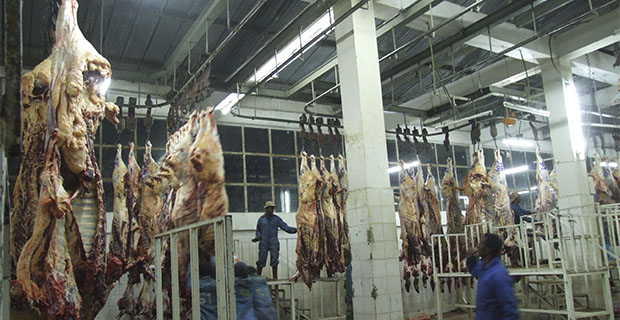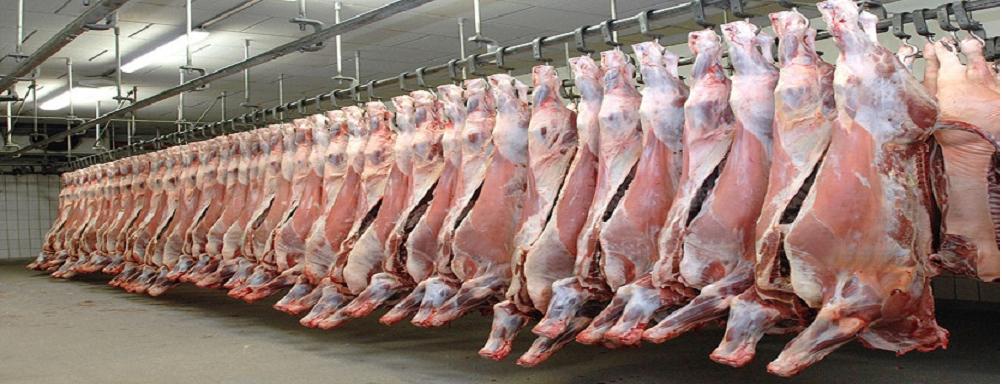Dubai (HAN) March 7, 2016. Public Diplomacy & Regional Security News. Five meat exporters caught up in a months-old accusation, refused exit from Dubai following exhibition. A delegation of eight Ethiopian meat exporters, who travelled to Dubai last week to participate in the Dubai Food Trade Expo, has been refused exit from the country, after being briefly detained by police.
Two of the delegates, Abebaw Mekonnen, secretary general of the Ethiopian Meat Producers-Exporters Association, and one of the abattoir representatives, found themselves under police custody in the United Arab Emirates (UAE), where they went to participate in an international exhibition.
They were promptly released, but were then forbidden from leaving the country, along with six of their colleagues who had gone with them. The delegation, comprising seven exporting abattoir representatives and one association representative, will not be able to leave the Emirates without settling a case pertaining a charge laid against them by a former trading partner. The partner claims to have been duped in a deal he brokered late last year.
Citizens of another country can be banned from travel if they are wanted in a criminal case. This can also happen in civil cases, to assure that defendants will be present for trial and to ensure that whatever sentence is given, will be carried out, explained a lawyer with extensive experience in international law, whose name is being withheld on request.
The Ministry of Industry, which was informed of the matter through its Diary & Meat Industry Development Institute, has asked for the cooperation of the Ministry of Foreign Affairs in a letter dated February 24.
“A former business partner accused them of tricking him,” the Institute’s Director, Hailesilassie Weres, told Fortune.
Some heavyweight intervention is being sought to resolve this unexpected turn of events.
“Our Embassy has contacted the UAE’s Minister of Foreign Affairs,” Siraj Reshid (Amb.), who heads relations with the Middle East said, “and I have contacted their Embassy here.”
The Ethiopian Embassy in the UAE is helping the stranded group find suitable legal representation, Hailesilassie confirmed.
However, some think the situation is not as serious as it appears to be.
As Getachew Hagos, president of the Ethiopian Meat Producer-Exporter Association predicts, “it’s a simple case of settling the contractual matter, a civil case, not a criminal one, and may not even make it to the courts.”
There is little chance that they can pursue this breach of contract as a criminal case. It will most likely be civil a matter, concurred Fekadu Petros (LLM), assistant professor at the College of Law & Governance at Addis Abeba University, whose field is International Dispute Settlement.
Others have confidence either way.
“We would rather go to the courts,” the Ambassador said, “the law is on our side and we have a great chance of winning.”
The cause of the group’s misfortune is a deal they entered in early October 2015, which resulted in a muddle that caused a week-long ban on Ethiopian meat imports to the country.
A relatively large shipment of 270 tonnes was requested of eight Ethiopian meat exporters for a charity organisation that was going to distribute the meat on the Arefa Holiday, upcoming at that time. Facilitated by the Association, loads of sheep and goat meat, had been delivered to the three Ethiopian Airlines cargo flights that would take them straight to the Arabian Peninsula, as per the Free On Board (FOB) contract.
That kind of contract in effect means the exporter’s responsibility is only up to the point where the merchandise is loaded upon the designated cargo vessel – in this case – airplane. Their contract also stipulated that any disagreements that may arise shall be seen in the Ethiopian Chamber of Commerce’s Arbitration Tribunal.
The importer, a middleman called Mubarak that had brokered the deal between the exporters and the charity organisation, requested that the amount of time spent on routine freezing of the meat be reduced.
“He insisted that the meat would be distributed immediately,” said Getachew, “negating the need for lengthy freezing time.”
Alas, when the shipment reached its destination, some of the meat was not up to the UAE’s required standard, resulting in the destruction of part of the merchandise and a temporary ban on exports from the country of origin, Ethiopia.
“Mubarak then claimed that he needed to be reimbursed for the amount that was returned,” said Hailesilassie.
“Proxies representing him and the charity had checked and approved the quality of the shipments both at the abattoirs and at the airport before loading,” he said.
As the contract stated that any disagreements requiring arbitration would be settled in Ethiopia, Mubarak, and those he represented were invited to the country to settle the matter, the Association Head said. Until the delegation left for Sharjah, the UAE’s cultural capital, he had yet to reply.
Only one member of the delegates was able to return. He told Fortune that, though he was not sure, he guessed that he was not detained because he was neither the owner nor the General Manager of the company he represented. He thought his name was probably not in their registry. He also requested that his name be withheld from publication.
“A few days into our trip we were given a call that said we were wanted for questioning,” he told Fortune, “and that we should report to the police station.”
Daring to travel despite the injunction, had brought him luck, but his colleagues were not so lucky.
“Some were caught at their hotel, others were turned away from the airport,” he said.
“One of the exporters, Frigorifico Boran Foods Plc, had already settled the matter in the UAE’s judicial system, so we are thinking of using the same lawyers that participated in that instance, Haileselassie said”
Some exporters think differently. One exporter said he wished the matter would be settled amicably.
“These things happen in business,” he said, choosing not to disclose his identity. “You cannot win them all, even when you know you are right.”
He disclosed that he is trying to engage with Mubarak and negotiate a deal that would be fair to both. His view is that arbitration would keep the process and result confidential, saving the reputation of the company as well as the country.
“It would also get rid of the uncertainty,” he said, “court is a gamble, there are losers as well as winners.”

Leave a Reply